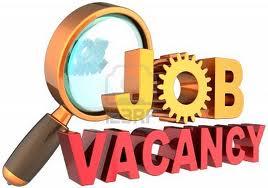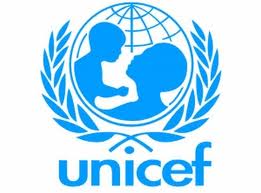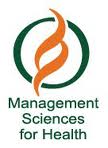The United Nations World Food Programme is the world's largest humanitarian agency fighting hunger worldwide. The mission of WFP is to help the world achieve Zero Hunger in our lifetimes. Every day, WFP works worldwide to ensure that no child goes to bed hungry and that the poorest and most vulnerable, particularly women and children, can access the nutritious food they need.
We are recruiting to fill the position below:
Job Title: Gender, Health Emergency, and Disaster Risk Management Specialist - Nigeria
Location: Nigeria
Vacancy Announcement N°: 704581
Grade: SSA 10 – National Consultant – When Actually Employed (WAE)
Duration: 44 working days over 6 months
Unit / Division: African Risk Capacity
Duty Station: Nigeria
Country Context / Organizational Context
- The West and Central Africa region is facing multiple crises with a number of hotspots where the deterioration is already causing significant humanitarian impact, and others where violence and fragility threaten to cause further displacements, human and livelihood losses, and instability.
- This is against a well-known backdrop of chronic vulnerabilities, recurring shocks, state fragility and poverty, in particular in the central band of the region.
- The Regional Bureau Dakar (RBD) provides support, guidance, and oversight to the 20 offices in Western and Central Africa.
- Background and Purpose of the Assignment
General background:
- Climate-induced hazards such as floods, storms, droughts, and earthquakes are seemingly gender-neutral; however, the gendered impact of such hazards is more far-reaching. Natural disasters affect men, women, boys, and girls differently, even when they belong to the same household.
- This means that men, women, boys, and girls experience differential impacts of disasters and consequently have different needs.
- This situation has posed challenges to disaster management practitioners since information on the affected populations is often limited to consolidated numbers which seldom exceed the number of households.
- A better understanding of the drivers behind the differentiated impact of disasters between men, women, boys, and girls will help inform policy development and improvement and tailor interventions for strengthening resilience.
- Climate change, economic uncertainties, new epidemics, and food shortages are coming together in a way that evokes considerable concern. In addition, there are gender-based vulnerabilities to disasters that do not emanate from a single factor but reflect historical and culturally specific patterns of social institutions, culture, and personal lives. Gender equality is pivotal in building resilience and adaptation pathways in disaster risk management.
- Trends across the Global South show that disaster management and response, including management of disease outbreaks, is traditionally viewed as ‘men’s business’ – planned by men for men (World Bank 2011).
- As a result, women’s needs are often not understood or addressed. Africa’s inability to adequately respond to disease outbreaks is compounded by the continent’s existing gender inequalities, usually defined by roles and responsibilities assigned to men and women. These manifest as: discriminatory traditional and social norms, and power relations; disproportionate access to and control over resources, services, and technology; limited women’s decision-making and leadership; and unequal literacy and education levels.
- These inequalities amplify the impact of disease outbreaks on girls and women, and deepen existing vulnerabilities, affecting the provision of other healthcare services such as immunizing children and women.
- According to the WHO, Africa faces on average about one hundred infectious disease outbreaks and other emergencies every year. Still, the continent’s ability to rapidly respond to these outbreaks and epidemics is a significant challenge for many African countries. The problem is that while investments have been made in national preparedness, the set-up of Emergency Operations Centers (EOC) and response planning, there is often no dedicated funding for countries for early response to outbreaks when they occur. As evident in the ECOWAS region, emerging infectious diseases increasingly threaten health, security, and development. Slow, unpredictable funding amplifies both the risk and impact of outbreaks. Moreover, countries with early warning and response systems for reporting and responding to outbreaks and epidemics rarely adequately consider gender differences in their interventions. Gender disparities, including access to resources and decision-making power, continue exacerbating the disease burden on women.
Nigeria Context
- Nigeria is a multi-ethnic and culturally diverse federation of 36 autonomous states and the Federal Capital Territory country located on the Gulf of Guinea known to have the largest economy in Africa in total Gross Domestic Product (GDP) and GDP by purchasing power parity (PPP). The country however faces various socio-economic challenges, ranking 163 out of 191 countries in the 2021 Human Development Index.
- Nigeria is no stranger to climate hazards and resultant natural disasters with increased rainfall causing flash floods, landslides, and gully erosion. Drought has also historically negatively impacted some parts of the country with desertification being predicted to some parts southward. These hazards exacerbate existing socio-economic challenges affecting agriculture, infrastructure, and trade, to name a few. The National Emergency Management Agency (NEMA) is the organ established to manage such disasters in Nigeria.
- Nigeria has also been confronted with numerous disease outbreaks with recent notable public health emergencies such as a Yellow Fever, Lassa Fever, Monkeypox, Cerebrospinal Meningitis and Cholera. In a bid to strengthen its epidemic preparedness, the government established the national-level agency, the Nigeria Center for Disease Control (NCDC) in 2011. Through participation in the World Health Organisation’s Joint External Evaluation (JEE) evaluation of the country’s readiness in 2017, the country was able to establish a national action plan for health security.
The Role of the African Risk Capacity
- The African Risk Capacity (ARC) Group is comprised of ARC Agency, a Specialized Agency of the African Union founded in 2012; and the African Risk Capacity Limited (ARC Ltd), a hybrid mutual insurer and the commercial affiliate of the Group founded in 2014.
- ARC Agency was established to support African governments in improving their capacities to better plan, prepare, and respond to natural disasters triggered by extreme weather events, outbreaks and epidemics. On the other hand, ARC Ltd offers complementary risk pooling and risk transfer services.
- Together, the two provide Member States with capacity building and contingency planning services, access to state-of-the-art early warning systems, and risk pooling and transfer facilities towards building resilience against natural disasters such as droughts and tropical cyclones. In the process, the Group strives to apply gender equality principles and achieve inclusivity in the programme to ensure that no one is left behind.
- In December 2022, the ARC Group launched its outbreaks and epidemics risk insurance product. This innovative risk financing instrument, requested in 2015 by African Ministers of Finance in the wake of the West African Ebola Outbreaks in 2013-2016, aims at equipping countries with rapid and predictable funding to contain high-impact infectious diseases outbreaks such as Ebola, Marburg, and meningitis, and complement the efforts of the Africa Centres for Disease Control and Prevention (Africa CDC) to safeguard the health security across Africa.
- ARC, through established partnerships with ECOWAS, the West African Health Organization (WAHO), and Institut Pasteur de Dakar, is supporting a capacity-building work to implement disaster risk management and financing practices, and build the capacities for surveillance, disease prevention, response and resilience to epidemics and other health emergencies in ECOWAS member states.
Accountabilities / Responsibilities
Under the direction of the ARC O&E and Gender Units and the support of the Country Engagement Managers, we are seeking to recruit one Gender, Health Emergency and Disaster Risk Management Specialist for Nigeria to:
- Conduct an in-depth gender analysis of the health sector from the Outbreak and Epidemics (O&E) perspective. The analysis aims to identify gaps & challenges and propose recommendations for gender integration in O&E towards gender transformation of the sector. The Consultant is to carry out an in-depth gender analysis to better understand where women, men and boys and girls are situated in O&E and Disaster Risk Management and Financing. Highlighting the barriers for women’s empowerment and participation in contributing to O&E and DRM and the opportunities for policy articulation to strengthen the integration of gender equality into O&E and DRM planning and implementation processes, by advancing recommendations to gender transformative approaches capable of ensuring gender equality for vulnerable men and women.
- Carry out an in-depth gender analysis on Disaster Risk Management & Financing (DRM&F) to identify gaps & challenges and propose recommendations in policies, strategies, and activities to ensure a gender-responsive and transformational DRM sector.
Consultancy Details
In line with the objectives above, the critical elements of the assignment are:
- Conduct an in-depth gender analysis of gender sensitivity and inclusivity from the perspective of i. Outbreak and Epidemics (O&E) and ii. the Disaster Management Sector– preferably using the gender audit methodology - and develop Gender Analysis Report(s)[1] incorporating a Plan(s) of Action.”
- Develop a Policy Brief for advocacy and resource mobilisation, based on the gender analysis findings.
- Using the Policy brief as a base, facilitating policy dialogue and donors’ round table to mobilise funds for gender transformative DRM and O&E financing.
- Adapt the ARC Gender & DRM training modules to the country context and include a module on Gender and O&E
- Conduct a Training of Trainers workshop for members of TWG and other ARC partners with the use of the developed training manual.
- Facilitate the establishment of a ToT national network and the setting up the Gender, Advocacy and Communications sub-working group of the TWG.
- Conduct the Training of Trainers of public officers and health practitioners in charge of national epidemics preparedness and response.
Education:
You Have:
- Advanced University Degree (Master's Degree equivalent, BAC+4/5) in one or more of the following disciplines: Public Health, Gender, DRM, Climate Change, Environment, Sustainable Development, etc. Or First University Degree (Bachelor's Degree equivalent, Licence/BAC +3) with additional years of related work experience or training / courses.
- Should you not find your university degree in this link kindly note that it will be your responsibility to obtain a formal letter from your Ministry of Education stating their recognition of the university and degree.
Experience:
You have:
At least ten (10) years of progressively advanced and relevant professional experience at the international and national levels (additional years’ experience for a bachelor’s degree) in public health, mainstreaming gender in development projects and policies, especially in the development of manual(s) and training materials for gender mainstreaming on at least one other related theme, including DRM, public health and sustainable development.
Skills / Knowledge:
You have developed the following Experiences, Knowledge & Skills:
- Substantive experience conducting research and analysis in public health, gender equality and at least one related theme, including Disaster Risk Management, climate change mitigation and adaptation environment and sustainable development.
- Strong understanding of the links between DRM, O&E and gender issues.
- Experience or strong familiarity with the work of WFP and other multilateral, bilateral and civil society development partners.
- Excellent analytical, writing, and communications skills.
Languages:
Excellent written and verbal communication skills in English, including the ability to write clear and concise briefing papers and external communication, strategic operational documents, etc.
Application Closing Date
5th June, 2023.
Method of Application
Interested and qualified candidates should:
Terms and Conditions
- All employment decisions are made based on organisational needs, job requirements, merit and individual qualifications. WFP is committed to providing an inclusive work environment free of sexual exploitation and abuse, all forms of discrimination, any kind of harassment, sexual harassment, and abuse of authority. Therefore, all selected candidates will undergo rigorous reference and background checks.
- No appointment under any kind of contract will be offered to members of the UN Advisory Committee on Administrative and Budgetary Questions (ACABQ), International Civil Service Commission (ICSC), FAO Finance Committee, WFP External Auditor, WFP Audit Committee, Join Inspection Unit (JIU) and other similar bodies within the United Nations system with oversight responsibilities over WFP, both during their service and within three years of ceasing that service.
- Female applicants and qualified applicants from developing countries are especially encouraged to apply. WFP has zero tolerance for discrimination and does not discriminate on the basis of HIV/AIDS status.
- Selection of staff is made on a competitive basis, and we are committed to promoting diversity and gender balance
- WFP will not request payment at any stage of the recruitment process including at the offer stage. Any requests for payment should be refused and reported to local law enforcement authorities for appropriate action.
- WFP has a zero-tolerance approach to conduct such as fraud, sexual exploitation and abuse, sexual harassment, abuse of authority and discrimination.
- All selected candidates will be expected to adhere to WFP’s standards of conduct and will therefore undergo rigorous background verification internally or through third parties. Selected candidates will also be required to provide additional information as part of the verification exercise. Misrepresentation of information provided during the recruitment process may lead to disqualification or termination of employment.





